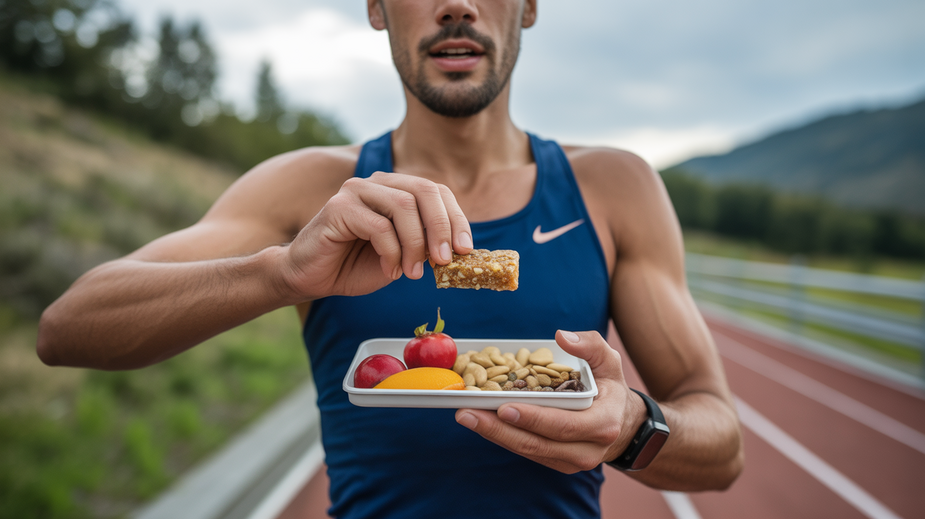Nutritional Risks of Unnecessary Restrictions
Simply removing gluten from your diet without careful planning can inadvertently create nutritional gaps, especially if you don’t have celiac disease or a diagnosed sensitivity requiring strict avoidance. Many foods made with wheat, barley, and rye, such as fortified breads, cereals, and pasta, are significant sources of essential nutrients in a typical diet. When you eliminate these without adequate replacement, you risk missing out on crucial vitamins and minerals necessary for optimal health and performance.
Common deficiencies associated with poorly planned gluten-free diets include:
- B vitamins (like thiamin, riboflavin, niacin, and folate): Essential for energy metabolism.
- Iron: Crucial for oxygen transport and preventing fatigue.
- Calcium: Important for bone health and muscle function.
- Fiber: Vital for gut health, blood sugar regulation, and satiety.
These nutrients play vital roles in energy metabolism, blood health, bone strength, and digestive function – all critical for optimal athletic performance.
Specifically, maintaining adequate fiber intake can be challenging. Whole wheat and other gluten-containing grains are rich sources of dietary fiber. Many gluten-free substitutes rely on refined starches (like rice, corn, or potato starch) which are much lower in fiber. Sufficient fiber is crucial for gut health, stabilizing blood sugar levels, and contributing to feelings of fullness. Athletes, particularly runners, need good gut health to absorb nutrients efficiently and avoid gastrointestinal distress during training and competition.
Iron is another nutrient of concern for athletes. Iron deficiency, even without progressing to anemia, can significantly impair endurance performance due to its essential role in oxygen transport via hemoglobin. While iron is present in many naturally gluten-free foods, some iron-fortified grains and cereals that are typically part of an omnivore’s diet are removed when going gluten-free. Ensuring adequate iron intake requires conscious effort, potentially focusing on lean meats, legumes, spinach, and iron-fortified gluten-free options, alongside vitamin C sources to enhance absorption.
Furthermore, a significant pitfall is relying heavily on processed gluten-free substitutes. The market is flooded with gluten-free cookies, cakes, crackers, and convenience foods. While these products are free from gluten, they are often high in added sugars, unhealthy fats, and low in overall nutritional value compared to their whole-grain counterparts or naturally nutrient-dense foods. Swapping nutrient-rich whole grains or natural foods for processed GF snacks does not support long-term health or athletic performance goals.
To mitigate these risks, a balanced approach is key. Focus on naturally gluten-free whole foods like fruits, vegetables, lean proteins, healthy fats, and naturally GF grains such as quinoa, brown rice, certified gluten-free oats, and buckwheat. Consulting resources like the Academy of Nutrition and Dietetics can provide guidance on structuring a nutritionally complete diet. Unnecessary dietary restrictions, particularly for athletes, require careful planning to avoid unintended health and performance drawbacks.
Future directions in sports nutrition science
As research in sports nutrition continues to advance, the landscape for optimizing performance is evolving rapidly. Looking ahead, several key areas are poised to redefine how athletes fuel and recover, potentially moving beyond broad dietary guidelines towards highly individualized strategies based on cutting-edge scientific understanding.
One of the most exciting frontiers is gut microbiome research. The trillions of microorganisms living in our digestive tract are proving to have a profound impact on overall health, including aspects critical for athletic performance. Scientists are exploring how an athlete’s unique gut flora influences everything from nutrient absorption efficiency and inflammation responses to energy metabolism and immune function. Future interventions could involve tailoring dietary fiber intake or utilizing specific probiotic and prebiotic supplements to cultivate a microbiome optimized for endurance and recovery. Research is increasingly linking gut health directly to athletic outcomes.
Delving deeper into the connection between the gut microbiome and athletic performance:
Another area with significant potential is personalized nutrition guided by genetics. While still a developing field, nutrigenomics investigates how an individual’s genetic makeup can influence their response to different foods and nutrients. Understanding specific genetic variations might someday allow nutritionists to fine-tune macronutrient ratios, pinpoint micronutrient needs, or predict sensitivity to certain dietary components, leading to truly bespoke fueling plans for peak performance. However, this field is complex and requires careful interpretation by qualified professionals, emphasizing that broad genetic testing is not a substitute for personalized guidance from a registered dietitian or sports nutritionist.
Observing the dietary patterns of elite athletes often provides a glimpse into the future of sports nutrition. We see a clear trend towards highly data-driven and individualized fueling strategies. These athletes work closely with nutritionists to track everything from energy expenditure and recovery markers to subjective well-being, integrating these insights with emerging scientific findings. Their approaches underscore a move away from generalized diets towards precision nutrition, often incorporating focuses on:
- Optimizing gut health through targeted dietary strategies and supplementation.
- Utilizing targeted supplementation based on individual needs and training phases.
- Understanding and leveraging metabolic individuality.
This evolving landscape promises more sophisticated and effective ways for athletes, including non-celiac runners considering dietary changes, to optimize their health and performance through highly tailored nutritional strategies in the years to come.








